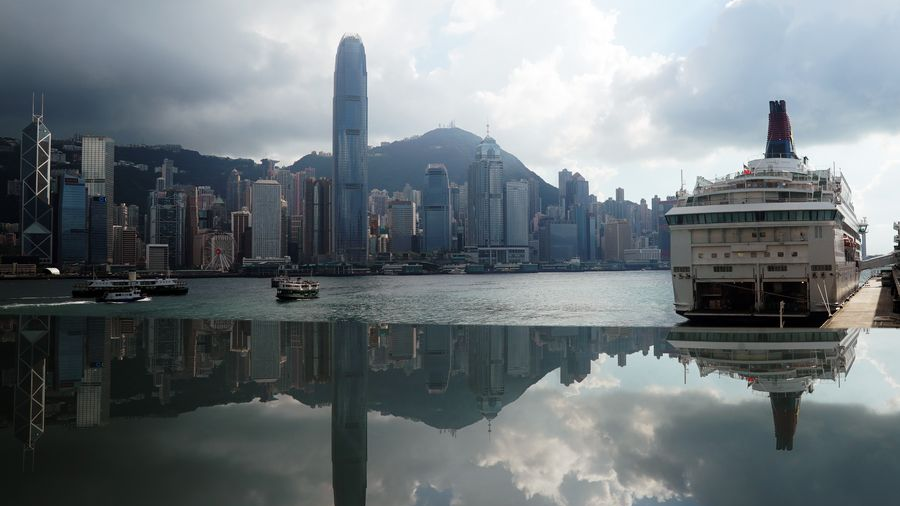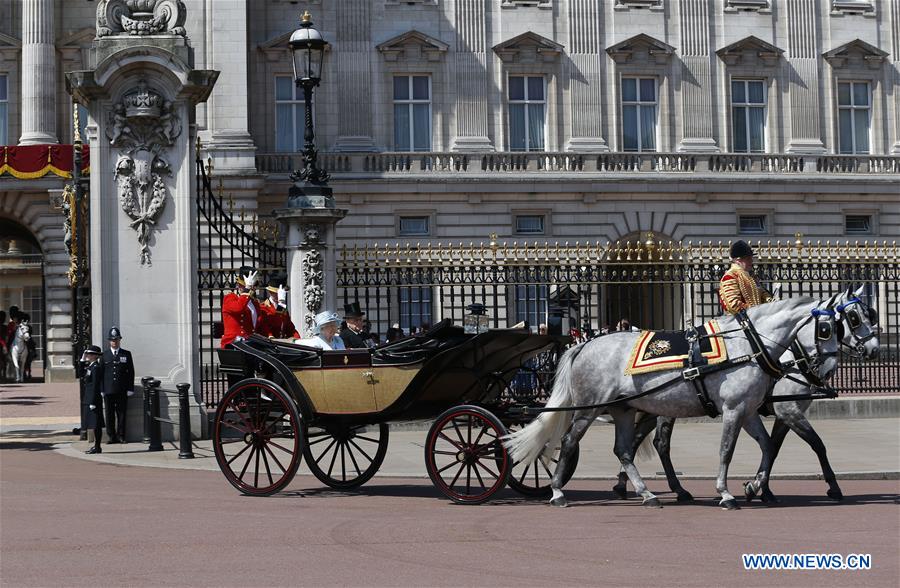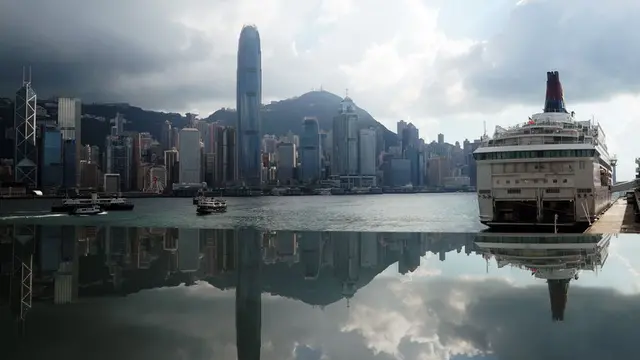
Photo shows the scenery of the Victoria Harbor in Hong Kong, south China, August 27, 2019. /Xinhua
**Editor's note: **Iram Khan is a Pakistan-based commentator on international affairs. The article reflects the author's opinions, and not necessarily the views of CGTN.
In a stark reminder of their country's 156-year colonial rule over Hong Kong, British lawmakers are calling China's national security legislation for Hong Kong "authoritarian." The label echoes the imperialist legacy of the UK that exploited underprivileged regions and spanned over the major part of the last two centuries.
When Hong Kong finally rejoined its motherland in 1997, the UK and China signed a Joint Declaration to streamline the handover process and the Chinese government resumed the exercise of sovereignty over Hong Kong. With that, the occupation came to an end and so did the UK's obligations and its supposed jurisdiction.
The metropolis has since enjoyed the status of a special administrative region with unprecedented rights. For the first time, people could see what life without the subjugation of a foreign power meant. But then, taking advantage of relaxed policies, incidents of interference started to surface. Riots and violence gripped the city and not only its economy took a hit but also its repute as a financial hub.
To address this problem, the Chinese government has introduced a legal framework in the form of the new law that safeguards Hong Kong's security without having any bearing on its autonomy. The legislation plugs the loopholes that were being exploited by certain elements to subvert the city's stability and prosperity.
By criticizing the law, the UK is misstating that China is backtracking from its commitments under the Joint Declaration. It has to be understood that the commitments made by the signing parties have already been fulfilled by them and now the government runs under the Constitution and the Basic Law.
UK's Foreign Secretary Dominic Raab told the British parliament on Tuesday that the UK has respected the declaration. But he failed to remind his colleagues of his country's failure to respect international obligations when it had been establishing colonies and usurping rights around the world.
In the case of Hong Kong, it was China that granted rights to local people who were living without any for several generations.
Colonial baggage of the UK makes it least suited to raise objections against the promulgation of the national security law for Hong Kong. The diatribe is revealing an antiquated mindset that may be at play here.

The royal family leaves the Buckingham Palace for Trooping the Colour in London, Britain, June 17, 2017. /Xinhua
The British imperialists, considering themselves masters of the locals, maintained a feudalist attitude while governing Hong Kong. When HMS Calliope arrived in 1841, it named the landing-place cynically as "Possession Street."
As industrialization flourished, the lords used their political might to exploit the city's economy and made it mandatory for many businesses to import manufactured goods only from the UK.
Those who stood against the oppression were rounded up in the Victoria Road Detention Center, also known as the "White House." Harrowing tales of the place still haunt the seniors who are alive today to recall their ordeals.
The locals were robbed of their identity, without the provision of an alternative one. They were issued with passports that described them not as British citizens but as British Nationals Overseas (BNOs).
This status implicitly made them second class subjects by disallowing a stay of more than six months in the UK. To date, the passport thus remains to be a mere tourist visa.
It is surprising to listen to current British politicians talking about this humiliating document. Playing on words, Home Secretary Priti Patel said she will explore options to allow BNOs to stay in the UK – not allow but explore the options to allow.
Raab told the members of parliament that he would look to provide Hong Kong people a pathway to citizenship – not provide but look to provide, not citizenship but a pathway to citizenship.
Prime Minister Boris Johnson, likewise, stopped short of offering full citizenship to BNOs. What he has offered is an extension of the six-month period of stay to twelve months and placing them – again read the words carefully here – on a "route" to citizenship. To put it straight, this exactly is the legacy of colonialism.
Johnson appeared quite generous when he said that around 2.5 million Hong Kong people would be eligible to apply for the BNO passports in addition to the 350,000 who already hold them.
The British government has lately been making immigration tougher than ever. To discourage refugees, new policies have set extremely high financial, educational and professional requirements for people to apply for residency.
Then there was another statement by Raab that scratched the wounds of all former British colonies. Speaking at the parliament, he said that by enacting the national security law for Hong Kong, China will be strangling Hong Kong that has been the jewel in the economic crown.
This brings to memory the jewels stolen by the empire from its colonies that have since decorated the crowns in Buckingham Palace. Such scars of the looting are still visible across Asia, Africa and the Americas.
If the UK will speak on internal matters of any of its formerly governed territories, a reaction will be natural. The Chinese Foreign Ministry spokesman, too, came down hard on what he
termed
a blatant interference in Hong Kong-related affairs. He fittingly advised the UK to abide by international law and warned that, otherwise, there will be consequences.
(If you want to contribute and have specific expertise, please contact us at
)
 简体中文
简体中文

